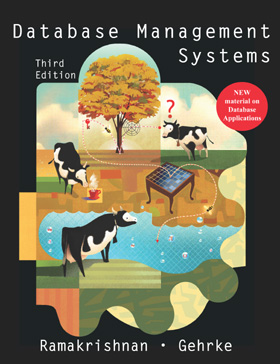 |
Database Management Systemsby Raghu Ramakrishnan and Johannes Gehrke
|
![]()
|
|
Installing the ExercisesSample test data and tables for the exercises at the end of Chapter 5 (on SQL) are available. With this data you may conveniently use Oracle to experiment with these problems. Scripts have been included to automatically create the tables and bulk load the provided data for you on both Windows and Unix. After the data has been loaded, you may add your own data or change what was provided as much as you like. Make sure you have Oracle installed and configured correctly on your computer before proceeding. Windows SystemOn a Windows system use the following procedures:
[Note that you must have the Windows Scripting Host 5.6 installed and enabled for this to work. If you have Internet Explorer 6.0 or above installed, it should have been installed by default. Otherwise, you can download WSH 5.6 here. If your Windows scripting is disabled, either temporarily enable scripting, or you may run the exercise_data\dbbook.sql script (located in the directory you extract the files to) in SQL*Plus and bulk load the data files in exercise_data manually with the sqlldr program and provided control files.] Unix SystemOn a Unix system use the following procedures:
[Note that you may use the windows installation script if you copy the entry from the $ORACLE_HOME/network/admin/tnsname.ora file on the Unix system to thetnsname.ora file on Windows and use the appropriate connect string. ] Notes:
Version 0.1.0.0 Last Updated: 2002/04/14 by
David Warden |